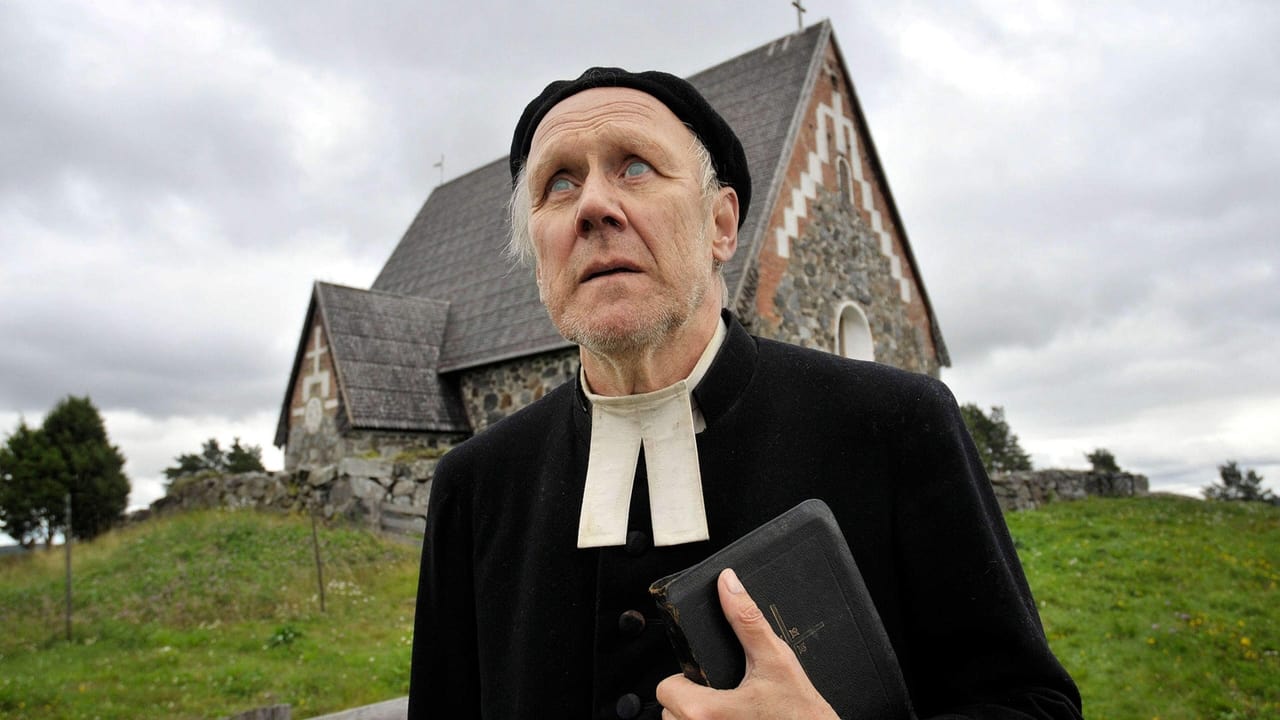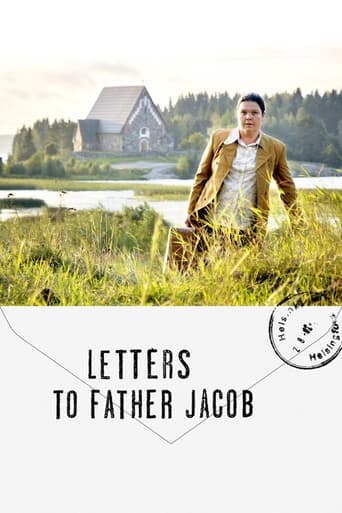

Lutheran church is the national religion in Finland. As a Lutheran, I was interested in this movie, which is set at a church in Finland. I think the main theme of the movie is the concept of love in Corinthian I chapter 13, which the pastor recites in preparation of a wedding ceremony: If I speak in the tongues of men or of angels, but do not have love, I am only a resounding gong or a clanging cymbal. *snip* And now these three remain: faith, hope and love. But the greatest of these is love. The ending is surprising and moving. Brightness and darkness of light, rain and cloud, are effectively used in the impressive cinematography, typical in North European movies. The high rate in IMDb is no question.However, when I saw the movie, I couldn't simply be moved to tears. There are many questions in this movie, and I couldn't help thinking about them. In fact, it makes you think too much. Let me take an example from the 'storyline' on IMDb: Father Jacob spends his days answering the letters of the needy. Indeed, letters come every day. But Father Jacob does not look like a famous pastor known over the country. His church is almost forgotten by the villagers. How come many letters come to the pastor from over the country asking his advice and prayer? There are many other points that made me think about. But I can't write here to avoid spoilers. Anyhow, although the run time is short, this movie requires longer time to assimilate it.
... View MoreHave you ever seen a movie that just sneaks up on you? You find yourself watching a film that seem okay and then suddenly you realize that it's really a magnificent and moving picture? Well, I sure have and I wish it happened more often, that's for sure. Like "My Afternoons with Margueritte", "Letters to Father Jacob" is one of these sweet pictures. But, because it sneaks up on you, be sure to pay attention and fight that urge to turn it off--it's a terrific little film.The film begins in prison. Leila has been pardoned for her crime but she refuses to leave! It seems she has no where to go and is content to stay in prison. However, an old blind priest named Father Jacob has requested that she be paroled to him--as a housekeeper. She is not thrilled but has no other options and moves in with the guy. Her job is to do light housekeeping as well as read letters to him. Apparently, he's received thousands of letters from people requesting his advice and prayers and that is his ministry. Leila seems pretty bored by this and even begins tossing many of the letters away and contemplates running. However, she stays and then it happens--the film really goes right for the heart. I won't say more--it would spoil it. However, suffice to say it was NOT predictable, many questions are answered and you should have some Kleenex nearby. The bottom line is that this film is exceptional--great writing, wonderful natural acting by folks who do not appear to be professional actors (though they are--especially Heikki Nousiainen who has had many film appearances) and the direction was just wonderful. If you don't mind a film without explosions, super-stars or glitz but just want a great film about people, give this one a try---you'll be glad you did!
... View Morefirst word - touching. but it is only a small suggestion. in fact, it is a kind of poem. puzzle of precise art to give to each piece not only importance but soul. it is beautiful but not the beauty is important. Kaarina Hazard, who remembers by Restituta Kafka, in an extraordinary role, mixture of force and storm of feelings, Heikki Nousiainen as priest who gives the light of Orthodoxy - delicate scene in church - in skin of Protestantism, Jukka Keinonen as postman - fragile, naive, full of fear. and the letters as axis of story. it is a gem. or an ice castle because, for director and viewer, the risk is same - to fall. but the gift is the subtle joy. that is basis for my invitation to see it. because it has potential of experience. because, like each good movie, it is a window - mirror. and because the faith has strange power to change a life.
... View MoreCareful, finely-honed directing by Klaus Härö features wonderful performances by Heikki Nousiainen and Kaarina Hazard. Brilliant casting. Small, tiny, luminous inventions are everywhere; nothing is heavy-handed. The story, first written by Jaana Makkonen, is austere, moving; the film ends just where it needs to in order for the story resonate. In any other person's hands besides Härö's, the result could have been disastrous. Why? Because the story does not appear to be overtly exceptional; and the visuals of the film need to be composed with the actors in natural, country surroundings and among existing buildings and a church. Härö, a cinematic poet, transmutes the physical materials he has on hand into gold. See this film if you dislike badly made movies and yearn for outstanding quality.
... View More